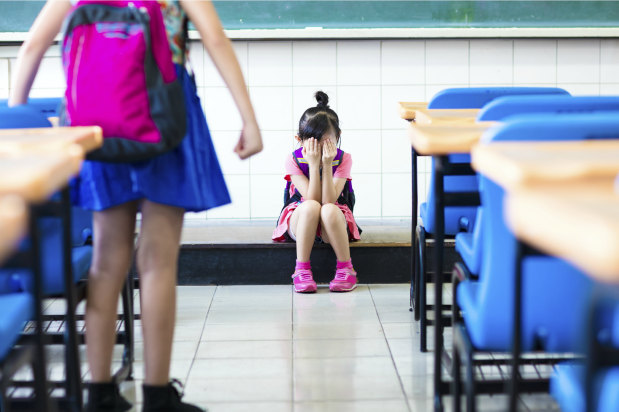According to stopbullying.gov, bullying is defined as “unwanted, aggressive behavior among school-age children that involves a real or perceived power imbalance.” One of the long-standing facts that make the fight against bullying even more crucial is that both the bullied child and the bully can develop serious, lasting problems.
In a recent Ohio State University study, researchers have found a possible link between children involved in bullying and the tendency for substance abuse. According to the study, both bullies and bully victims who bully others were more likely to use substances compared to their victims and youth who are not involved in bullying.
The research, which involved a survey of over 74,000 students in Franklin, Ohio, found that only 1.6 percent of middle school students not involved in bullying reported marijuana use compared to 11.4 percent of those who were bullies. Among high school students, only 13.3 percent of those not involved in bullying reported marijuana use compared to 31.7 percent of bullies. The study also found similar results for alcohol and cigarette use.
The Role of the Community
The key approach to addressing both bullying and substance abuse begins with raising children who are less likely to reach for substances in the first place. It’s an effort in which families, the school system and the entire community will have to play a vital role.
Parents and Guardians
Parents should encourage a close parent-child relationship to help children feel more able to talk openly about their problems. To help foster this relationship, you can create a family dinnertime where everyone sits together at the table and has the opportunity to talk about the details of their day—void of TV, cellphones or any other distractions.
In addition, instill a strong sense of empathy and positive values in your children to help them determine right from wrong and deter them from engaging in bullying behaviors. Lastly, set clear and consistent disciplinary actions in order to help kids understand that certain behaviors will have consequences. This will foster the notion that bullying will not be tolerated.
School Administrators
Instilling empathy and positive values in children isn’t a responsibility for parents or guardians alone. School administrators must teach them that certain behaviors will not be tolerated by disciplining those who act out and emphasizing the importance of equality among peers.
Studies have shown that children who do well in school and feel enthusiastic about learning have lower chances of involvement with bullying and substance abuse in their adolescence. By providing students with positive reinforcement and rewards for their schoolwork as well as creating a fun and informative learning environment, you are helping to create a future free of bullies and substance abuse.
Children and Their Peers
Children and teens need to be mindful of the company they keep. Adolescents that befriend bullies are more likely to end up engaging in bullying behavior themselves. They also have to be able to identify red flags when they’re being peer pressured or manipulated into doing things to seem “cool” or become popular. At the event of bullying, children must feel confident they can reach out to a parent, teacher or guidance counselor, or a trusted adult for help.
We can prevent children from experiencing the scarring mental and long-lasting emotional problems that come with bullying if we all played our part. As a community, we need to teach our children to recognize its signs and react without violence in order to spare them from a future spent dealing with old wounds that are difficult to heal on their own. If you or someone you know is seeking help from substance addiction, please visit our directory of treatment centers or call 866-606-0182 to start the path to recovery today.
Those who may be engaging in bullying behaviors or feel that they’re a victim of bullying, please call the following hotlines:
Crisis Call Center: 800-273-8255 or text “ANSWER” to 839863
National Suicide Prevention Hotline: 800-273-TALK (8255)
Thursday’s Child National Youth Advocacy Hotline: 800-USA-KIDS (800-872-5437)







